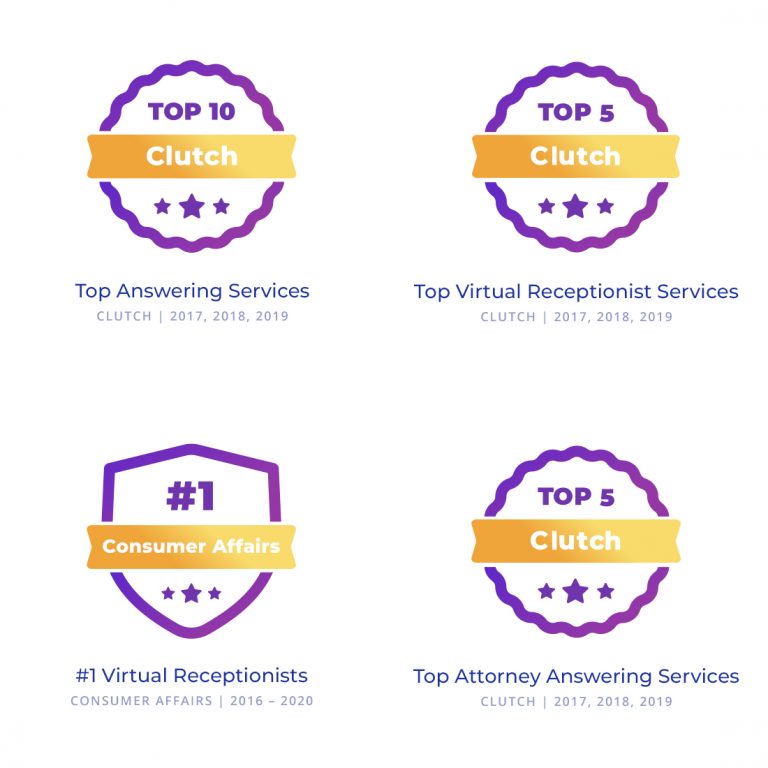
Welcome to the world of real estate receptionists, where professionalism meets hospitality in the busy realm of property transactions.
According to Statista, the United States real estate market is projected to be valued at around $142.88 trillion by 2028. That is a substantial increase considering how the industry was valued at $111.53 trillion in 2022. That means plenty of work done and to do for real estate companies, and industry professionals like real estate receptionists and real estate answering services.
While the job title sounds simple, it’s far more complex than it seems. If you’ve ever wondered what it takes to be the “first line” of a real estate office, this comprehensive guide is here to enlighten you. We’ll dive into the core responsibilities, essential skills, and the sheer importance of this role in ensuring smooth office operations.
Role and Responsibilities of a Real Estate Receptionist
As the face and voice of the real estate office, a receptionist wears many hats and keeps the wheels turning behind the scenes. Let’s explore the key duties that define their role:
1. Greet and assist visitors and clients:
- A warm smile and a welcoming demeanor create a positive first impression.
- Guide clients and visitors to the appropriate departments or agents.
- Provide information about available properties and services offered.
2. Answer and direct phone calls:
- Handle a busy phone system, ensuring calls are directed promptly and efficiently.
- Serve as a knowledgeable resource for inquiries regarding property listings, appointments, and general information.
- Employ excellent phone etiquette to leave callers with a favorable impression.
3. Schedule appointments and manage calendars:
- Maintain a well-organized schedule for real estate agents, ensuring no double bookings occur.
- Coordinate appointments between clients, agents, and other relevant parties.
- Use calendar management tools to optimize time management and efficiency.
4. Handle incoming and outgoing correspondence:
- Sort and distribute mail, packages, and faxes to the appropriate recipients.
- Draft and send professional emails on behalf of the office.
- Maintain an organized filing system for physical and digital documents.
5. Maintain office cleanliness and organization:
- Ensure the reception area and common spaces are tidy and presentable.
- Arrange for the maintenance of office equipment, such as printers and copiers.
- Manage inventory of office supplies and place orders as needed.
6. Assist with administrative tasks:
- Provide administrative support to real estate agents and staff, such as preparing documents, reports, and presentations.
- Conduct research and gather information as requested.
- Collaborate with other administrative personnel to streamline office operations.
7. Support real estate agents and staff:
- Act as a reliable resource for agents, offering assistance with various tasks.
- Coordinate open houses and property showings, ensuring all necessary arrangements are made.
- Collaborate with marketing teams to create and distribute promotional materials.
8. Utilize technology and office tools effectively:
- Proficiently navigate real estate software, customer relationship management (CRM) systems, and office productivity tools.
- Stay up to date with technological advancements and industry-specific software.
- Troubleshoot minor technical issues or escalate them to the appropriate IT personnel.
Skills and Qualifications for a Real Estate Receptionist
Being a real estate receptionist requires a unique blend of interpersonal skills, organizational prowess, and industry knowledge. Here are the essential skills and qualifications that set apart exceptional real estate receptionists:
1. Excellent communication and interpersonal skills:
- Articulate and friendly communication both in person and on the phone.
- Active listening to understand client needs and provide appropriate assistance.
- Ability to communicate complex information in a clear and concise manner.
2. Strong organizational and multitasking abilities:
- Manage a diverse range of responsibilities simultaneously.
- Prioritize tasks effectively and meet deadlines in a fast-paced environment.
- Maintain meticulous attention to detail to avoid errors or oversights.
3. Proficiency in office software and equipment:
- Familiarity with word processing, spreadsheet, and presentation software.
- Ability to navigate CRM systems, databases, and other industry-specific tools.
- Basic troubleshooting skills for office equipment and software issues.
4. Knowledge of real estate terminology and processes:
- Understand key real estate terms and concepts to effectively assist clients.
- Familiarity with property listing and management processes.
- Awareness of legal and regulatory requirements relevant to real estate transactions.
5. Customer service and problem-solving skills:
- A patient and empathetic approach to addressing client concerns and complaints.
- Ability to resolve conflicts and diffuse tense situations.
- Proactive problem-solving to find efficient solutions for client needs.
6. Attention to detail and time management skills:
- Accurate data entry and record-keeping to maintain organized systems.
- Timely scheduling and coordination to optimize efficiency.
- Ability to manage interruptions while staying focused on core tasks.
Tips for Excelling as a Real Estate Receptionist
To truly shine as a real estate receptionist, consider the following tips and best practices:
1. Develop a professional and friendly demeanor:
- Be the welcoming face of the office, radiating positivity and approachability.
- Dress professionally and maintain a polished appearance.
2. Master phone etiquette and communication skills:
- Answer calls promptly and with enthusiasm.
- Listen actively, taking notes if necessary, to provide accurate information.
- Use confident and courteous language, reflecting the brand’s tone and values.
3. Prioritize tasks and manage time effectively:
- Create a daily to-do list to stay organized and focused.
- Set realistic goals and allocate time accordingly.
- Learn to delegate tasks when appropriate to ensure efficient workflow.
4. Stay updated with real estate industry trends:
- Regularly read industry publications, blogs, and news updates.
- Attend seminars, webinars, and networking events to expand your knowledge.
- Familiarize yourself with local market trends and emerging technologies.
5. Foster positive relationships with clients and colleagues:
- Build rapport with clients, understanding their preferences and needs.
- Collaborate effectively with agents, brokers, and other staff members.
- Cultivate a friendly and helpful work environment.
6. Continuously improve skills through training and development:
- Seek professional development opportunities specific to the real estate industry.
- Attend training sessions or workshops on customer service, software proficiency, and industry-specific topics.
- Pursue relevant certifications to enhance credibility and expertise.
Career Path and Opportunities as a Real Estate Receptionist
The role of a real estate receptionist can open doors to exciting career prospects within the industry. Consider the following pathways and opportunities:
1. Progression within the real estate industry:
- Transition to a real estate assistant or administrative coordinator role.
- Explore opportunities in property management or real estate marketing.
- Pursue licensing as a real estate agent or broker.
2. Additional roles and responsibilities:
- Take on marketing responsibilities, such as social media management or content creation.
- Expand into transaction coordination or property listing management.
- Specialize in client relationship management or customer service.
3. Training and certification programs:
- Research professional development programs offered by real estate associations or organizations.
- Consider certifications such as the Real Estate Professional Assistant course.
Frequently Asked Questions (FAQs) about Real Estate Receptionists
Curious minds often seek answers, so let’s address some of the most common questions people have about real estate receptionists:
1. What skills does a real estate receptionist need?
Real estate receptionists need excellent communication, organization, and customer service skills. They should also be proficient in office software and have knowledge of the real estate industry.
2. How much does a real estate receptionist earn?
Salaries for real estate receptionists vary depending on location, experience, and the size of the real estate office. According to GlassDoor, salaries of real estate receptionists range between $40,000 and $60,000 per year.
3. What are the daily tasks of a real estate receptionist?
Daily tasks may include greeting visitors, answering calls, scheduling appointments, managing correspondence, assisting with administrative tasks, and supporting real estate agents and staff.
4. Can a real estate receptionist become a real estate agent?
Yes, a real estate receptionist can pursue a career as a real estate agent by obtaining the necessary licenses and completing the required training.
5. What qualifications are required to work as a real estate receptionist?
While specific qualifications may vary, most employers seek candidates with a high school diploma or equivalent. Additional certifications or coursework in real estate can be beneficial
6. How can I improve my customer service skills as a real estate receptionist?
Practice active listening, empathy, and problem-solving. Attend customer service workshops or courses to enhance your skills.
7. Are there any specific software or tools used by real estate receptionists?
Real estate receptionists often use CRM systems, office productivity tools (e.g., Microsoft Office Suite), and industry-specific software for property listings and databases.
8. What are the challenges faced by real estate receptionists?
Common challenges include managing a high volume of calls, juggling multiple tasks simultaneously, handling difficult clients or situations, and adapting to fast-paced office environments.
9. Is experience necessary to become a real estate receptionist?
Experience can be beneficial but is not always a strict requirement. Entry-level positions may be available for candidates with strong interpersonal and organizational skills.
10. How can I stand out in a real estate receptionist interview?
Highlight your customer service skills, organizational abilities, and industry knowledge. Showcase your adaptability, professionalism, and enthusiasm for the role.
Abby Connect for Your Virtual Real Estate Receptionist Needs
The role of a receptionist is a multifaceted and vital position within the real estate industry. By performing a range of responsibilities with finesse and professionalism, real estate receptionists ensure that office operations run smoothly and clients receive the support they need, which are key ways you can grow your real estate business.
As more and more clients, these days prefer to meet or make inquiries virtually from the comfort of their own homes, real estate receptionists of the virtual variety are also key cogs in many real estate machines.
At Abby Connect, virtual receptionists go above and beyond to ensure every real estate inquiry and interaction goes smoothly. It is characterized as informative with a genuine desire to be helpful.
When choosing Abby Connect for your virtual real estate receptionist needs, you are assured that schedules are duly aligned, calls and messages are promptly answered, and, most importantly, your real estate business is thriving with plenty of satisfied customers.
References:
- “Real Estate – United States | Statista Market Forecast.” Statista, Statista, 2023, www.statista.com/outlook/fmo/real-estate/united-states. Accessed 21 June 2023.
- “Real Estate – United States | Statista Market Forecast.” Statista, Statista, 2023, www.statista.com/outlook/fmo/real-estate/united-states. Accessed 21 June 2023.
- “Real Estate Receptionist.” Glassdoor, 2023, www.glassdoor.com/Salaries/real-estate-receptionist-salary-SRCH_KO0,24.htm. Accessed 21 June 2023.

